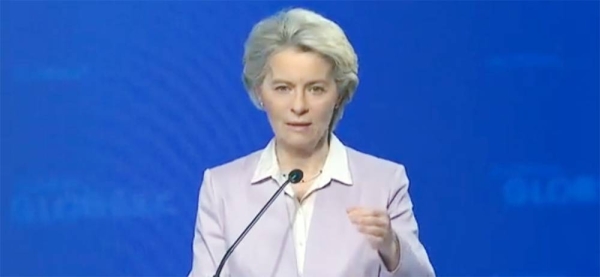
The European Union is ready to expand its already-long list of sanctions against the administration of Belarusian President Alexander Lukashenko in a bid to contain the worsening crisis at the EU"s eastern borders.
Brussels accuses Lukashenko of orchestrating a "cynical" hybrid attack and weaponizing migrants against the bloc in retaliation to the penalties imposed in the aftermath of the 2020 Belarusian disputed presidential election.
The EU believes Belarusian authorities are luring people from the Middle East and African countries all the way to Minsk airport to then send them towards the borders with Poland, Lithuania and Latvia.
The Belarusian airline Belavia, which is state-owned, is seen as a key enabler behind the complex plot.
President Lukashenko continues to deny any responsibility.
The European Commission has already mobilized its officials to countries of origin and transit, such as Iraq, Lebanon and the United Arab Emirates, to stop Minsk-bounded flights from taking off.
Foreign affairs ministers from the 27 member states met in Brussels on Monday morning to discuss this and other measures, which are set to materialize in a new package of EU sanctions.
The Council agreed to widen the blacklisting criteria in order to penalize those who organize or contribute to the illegal crossings. The specific list of targets will be finalized in the coming days.
So far, the bloc has targeted 166 individuals and 15 companies from Belarus across four different rafts of sanctions, which even include President Lukashenko"s family members.
"Sanctions are always effective because they affect people, their wealth and their capacity of movement," said Josep Borrell, the EU"s high representative, ahead of the meeting.
Borrell, who called the crisis "completely unacceptable", said the fifth package of sanctions will punish "airlines, travel agents and everybody involved in this illegal push of migrants". He noted most flights headed to Minsk had been stopped thanks to the EU"s diplomatic outreach.
"Things are becoming under control, but we have to provide humanitarian assistance to these people [migrants trapped in the border] and to prevent any kind of hybrid attack against the European Union’s borders," Borrell declared, adding he has been in touch with the United Nations to provide the necessary humanitarian aid.
Gabrielius Landsbergis, Lithuania"s foreign affairs minister, said the fifth raft of penalties should be "broader" than the previous four ones and force planes to land "nowhere in Belarus".
"We need to make Minsk airport a no-fly zone," Landsbergis said.
Meanwhile, José Manuel Albares Bueno, Spain"s foreign affairs minister, argued the "common European response" against Belarus should be "comprehensive, firm, clear" and done in solidarity with the member states on the frontline.
Although the border crisis has been going on since early summer, the situation took a dramatic turn last week when hundreds of new arrivals showed up at the Belarus-Poland frontier.
Poland claims over 15,000 migrants have been recently flown to Minsk and sent to the country"s border. Warsaw has deployed thousands of soldiers to prevent illegal crossings.
The situation has deteriorated to the point of being described as a humanitarian crisis, with sub-zero temperatures causing multiple cases of hypothermia. At least ten people have died in the area.
Access to the area is restricted to journalists, making reports hard to verify.
The EU, the US and NATO have strongly condemned Lukashenko"s scheme and demanded an immediate end to the state-sponsored instrumentalization of migrants.
Ursula von der Leyen, President of the European Commission, was among the first leaders to call for renewed sanctions against Belarusian officials and third-country airlines involved in human trafficking.
For his part, Russian President Vladimir Putin has offered his help to mediate in the crisis and has denied any role in Lukashenko"s plot. He publicly dismissed the Belarusian leader when he threatened to cut off EU-Russia gas supplies, which go through a pipeline based in the country. — Agencies












